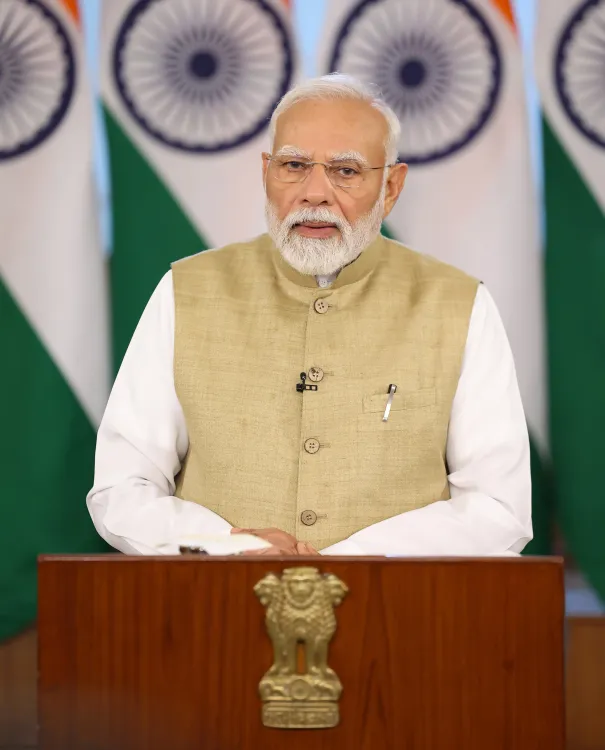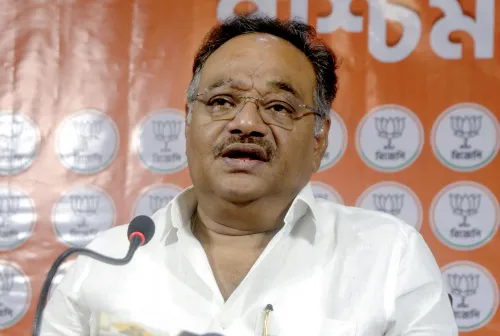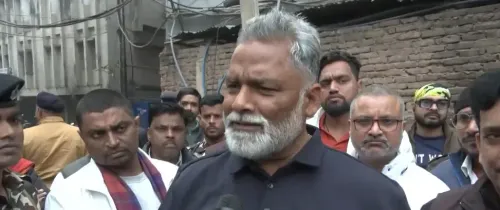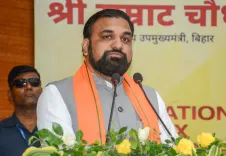What is the Future of India’s National Security Policy?

Synopsis
Key Takeaways
- India’s NSP prioritizes counter-terrorism efforts.
- Internal security is crucial for national stability.
- Foreign investment is essential for defense self-reliance.
- India must navigate complex geopolitical relationships.
- Strategic adjustments are necessary for evolving threats.
New Delhi: In a brief address to the nation following Operation Sindoor on May 12, Prime Minister Modi articulated several principles that could be considered integral to India's national security framework.
Many strategic experts have urged for a formal National Security Policy (NSP), unaware that disclosing its specifics publicly might inadvertently aid adversaries and that such a policy might need adjustments due to evolving geopolitical dynamics.
Prime Minister Modi’s assertion that any further terrorist onslaught from Pakistan would be treated as an ‘act of war’ and countered by our armed forces is a fundamental element of our security doctrine, aligning with India’s commitment to ‘zero tolerance towards terrorism’ on global platforms.
We can envision the enduring frameworks of foreign and domestic policies that would form our NSP, even in the absence of a formal document. The conclusion of the Cold War in the early 90s allowed nations, large and small, to assert their status without the pressure of superpower rivalry. Consequently, this period turned into one marked by ‘proxy wars’, characterized by a surge in insurgencies, separatist movements, and cross-border militancy, with estimates suggesting nearly 200 such incidents.
The US credited Pakistan for its role in the anti-Soviet campaign under the banner of Jihad, which contributed to the USSR's collapse and the Cold War's end.
However, Pakistan sought to replicate the Afghan Jihad's success in Kashmir, deploying the notorious Harkat-ul-Ansar (HUA), a coalition of radical Islamic militants, to undertake a failed attempt at ‘liberating’ the valley. Faith-based terrorism now poses a significant threat to democratic societies globally, and it is reassuring that both the US and Russia oppose Islamic extremism—illustrated by a recent terror attack in Moscow by ISIS-K, a competitor of Al Qaeda, during the US-led ‘war on terror’.
The March 2024 assault by four terrorists armed with automatic weapons resulted in the tragic loss of 145 lives, including many children, and left 500 others injured. Terrorism remains a critical threat to India, and our NSP rightly prioritizes it.
India's experience with the Non-Aligned Movement throughout the Cold War was mixed. In the ideological tussle between the Soviet Union's International Communism and the US's Capitalist approach, India seemed to lean towards one side.
In the post-Cold War era, India has carved its path based on a ‘mixed economy’, demonstrating a capacity to maintain geopolitical relationships with allies founded on mutual benefits. Prime Minister Modi has articulated India's commitment to peace, which should serve the nation well in the long haul.
This stance aligns with a deliberate strategy to bolster India’s economic strength and self-reliance in defense. It is commendable that Prime Minister Modi is proactively engaging on both fronts. The policy encouraging foreign investment in the defense sector, contingent on technology transfer and production in India, should be viewed as integral to our security framework.
India's foreign policy promotes bilateral relationships within a multipolar world, enabling the country to respond effectively to military conflicts globally.
India must prepare to confront two adversaries on its borders collaborating against it. The national security policy must consider the threat from the Sino-Pak axis, particularly concerning Kashmir, as highlighted during the post-Pahalgam military standoff between India and Pakistan. The Indo-US alliance can be sustained through a shared opposition to ‘Islamic terrorism’ and American support for India against any hostile Chinese actions.
It is essential for the Trump administration to recognize the Pak-Afghan region as a breeding ground for Islamic terrorism, while India should continue to inform the US about the dynamics there. The Biden administration has shown some neglect towards this area, and the US must be reminded that Pakistan has adeptly maintained a positive image with America while sheltering radical terrorist factions, despite the latter being viewed as a primary enemy by these groups.
Moreover, Pakistan has brokered a settlement between the Taliban Emirate and China, a development American policymakers should take note of. The evolution of India’s national security policy should be seen as a continuous process, retaining core strategic interests while allowing for tactical modifications based on geopolitical shifts and global economic trends.
Any national security policy must comprehensively address safeguarding the nation's internal security, integrity, and unity.
As a vast and diverse nation, India is vulnerable to conflicts arising from caste, creed, and regional disparities, necessitating policies that uphold fundamental rights, ensure freedom for citizens to reside anywhere in the state, and provide access to justice.
Law and order maintenance must be robust throughout the country, and since this falls under state jurisdiction, the Central government's authority to address any significant state failures should be reinforced. This is particularly crucial in an era where adversaries can instigate internal strife through 'sleeper cells' activated via digital platforms. It is encouraging to see the Union Home Minister working towards enhanced coordination between central agencies and state police forces as part of the national security policy.
(The author is a former Director of the Intelligence Bureau)










